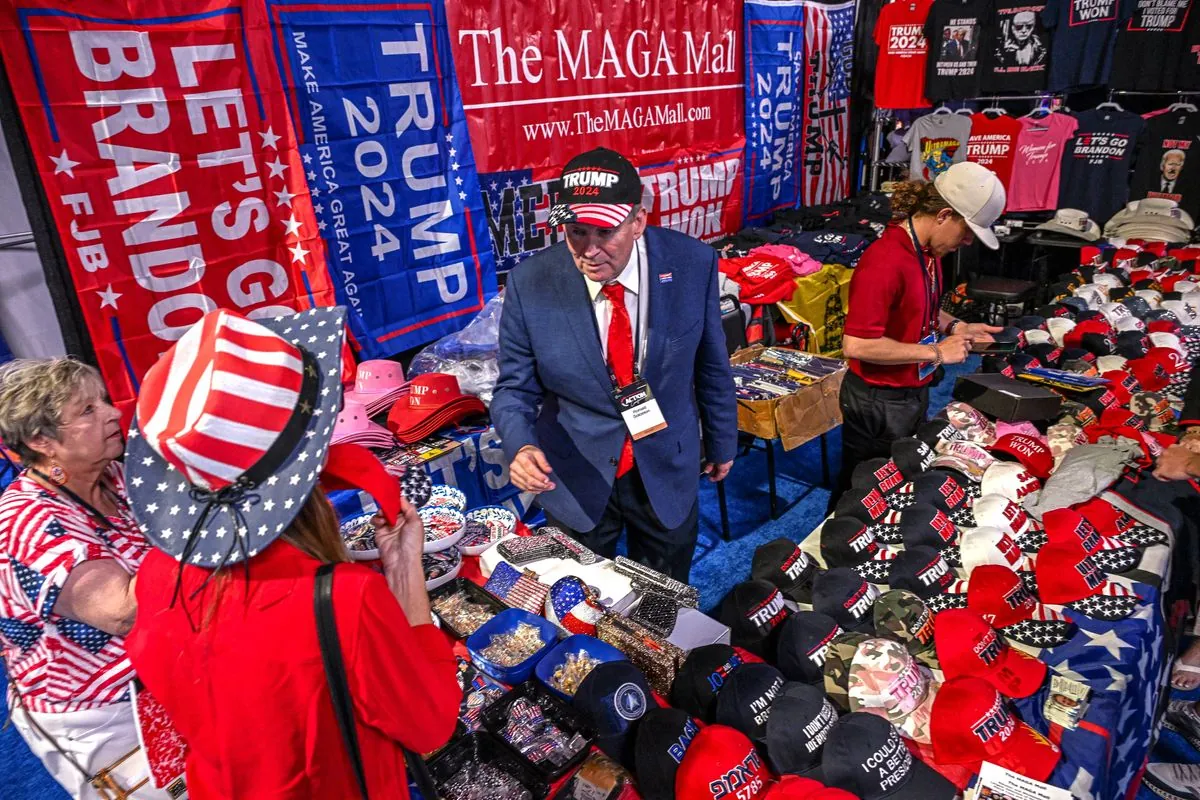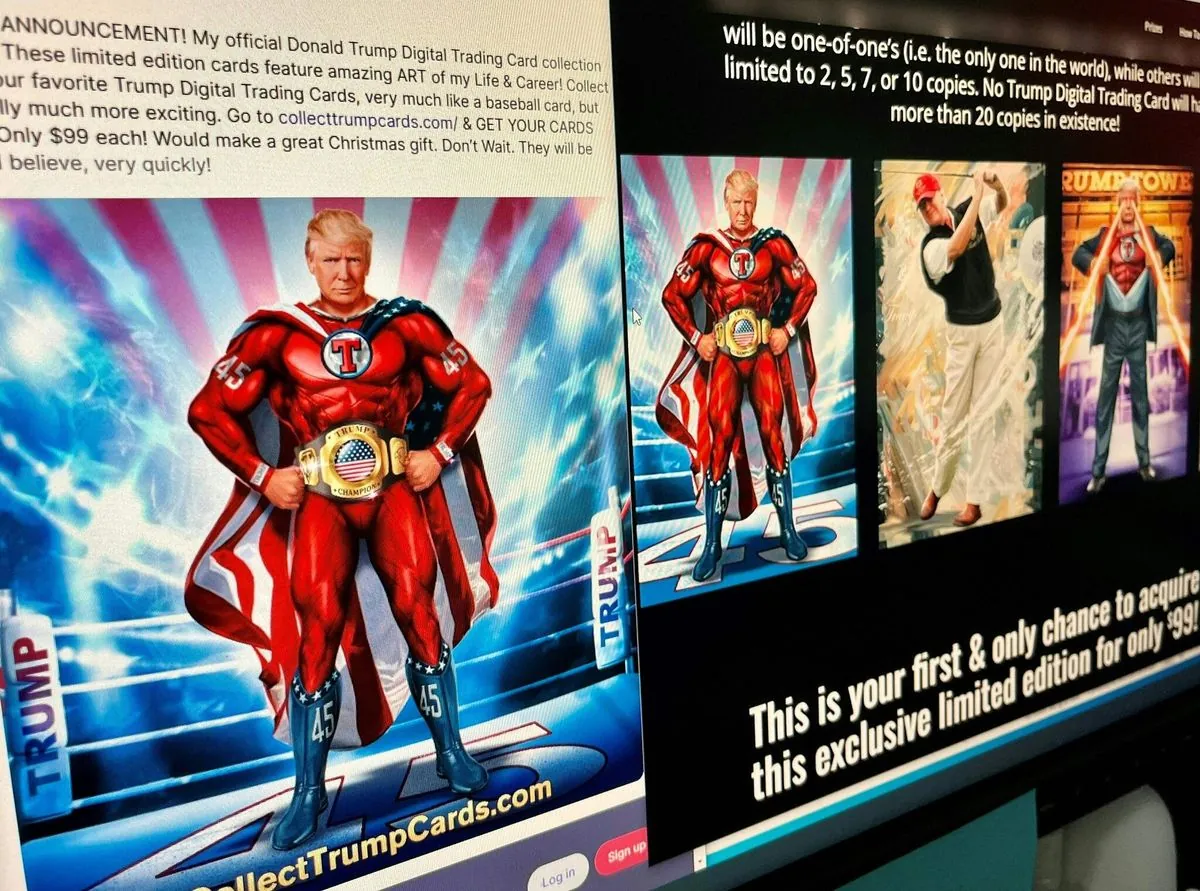Trump's Unprecedented Merchandise Sales Raise Ethical Questions in Presidential Race
Former President Trump's extensive merchandise sales during his presidential campaign spark debate. Critics argue it blurs lines between personal profit and politics, while supporters defend his business acumen.

As the 2024 U.S. presidential election approaches, Donald Trump's campaign strategy has taken an unusual turn. The former president is actively promoting and selling a wide range of personal merchandise, from digital trading cards to autographed books, raising questions about the ethics of mixing business with politics.
In late August, approximately eight weeks before the election, Trump announced the sale of new digital trading cards priced at $99 each. These cards feature images of the former president in various scenarios, including dancing and holding bitcoins. Buyers purchasing 15 or more cards were promised a physical card containing a piece of Trump's debate suit, with some even autographed.

This marketing approach is unprecedented in U.S. presidential history. Don Fox, former general counsel for the U.S. Office of Government Ethics, stated:
Trump's merchandise offerings extend beyond digital collectibles. His company's website sells political items at higher prices than his campaign store, and he has endorsed various products, including a $60 Bible and $499 sneakers.
Critics argue that this blurs the line between personal profit and political campaigning. Ammar Moussa, director of rapid response for the Harris campaign, commented that it reinforces the narrative that Trump prioritizes his own interests over those of the American people.
However, Trump's team defends his actions. Spokeswoman Karoline Leavitt emphasized his previous financial sacrifices, stating that he "left his multibillion-dollar real estate empire to run for office" and "was the first President to actually lose net worth while serving in the White House."
The former president's merchandise sales strategy raises several ethical and political concerns:
- Potential conflicts of interest
- Blurring of lines between personal business and political campaign
- Use of political influence for personal gain
- Impact on public perception of the candidate's motivations
Douglas Brinkley, a presidential historian at Rice University, noted that while former presidents have often profited from books and speeches, Trump's extensive marketing is unprecedented. "It's a real blurring of the lines between his private marketeering and campaign politics," Brinkley observed.
As the election draws near, the debate over Trump's business practices continues to intensify. Whether this unique approach will impact his campaign remains to be seen, but it has undoubtedly set a new precedent in American politics.


































